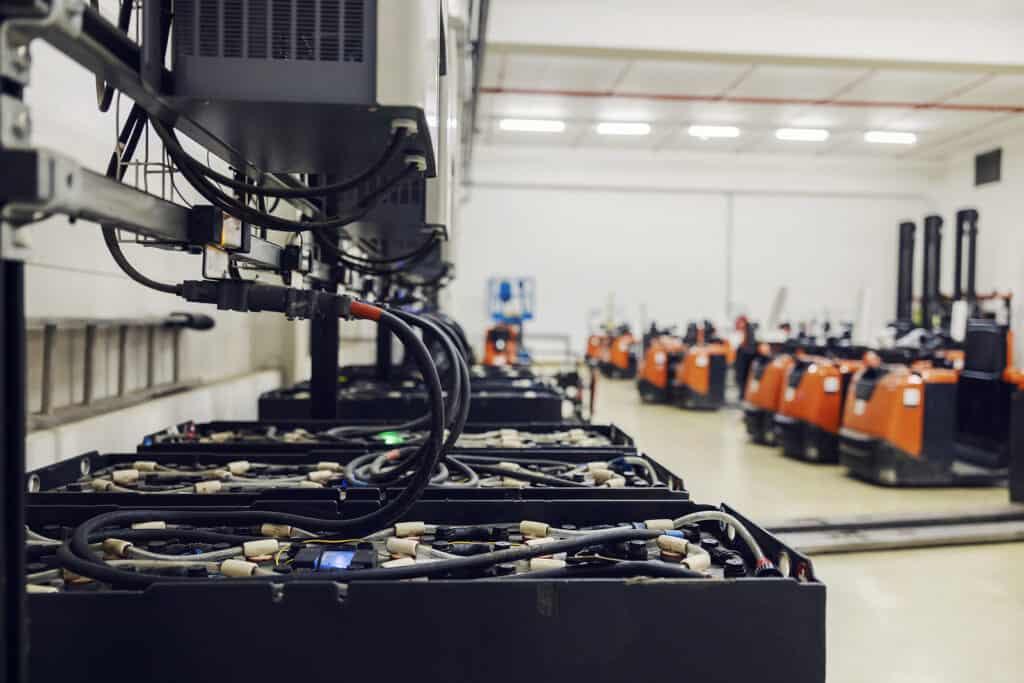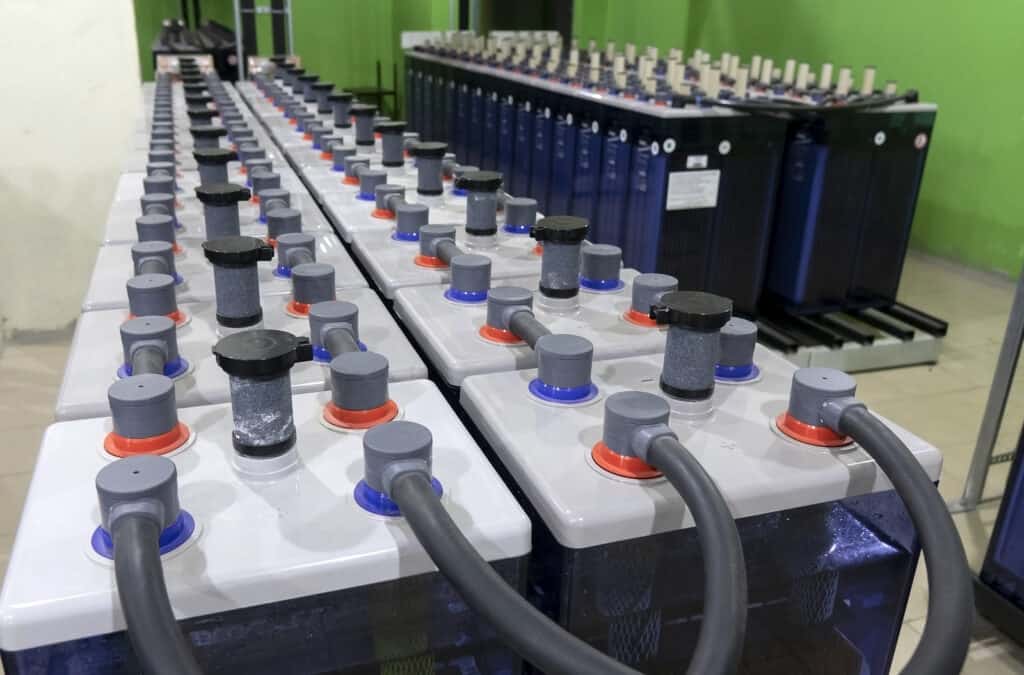100 kwh Battery Storage: The Missing Piece to Achieving a Sustainable Energy Future
In the quest for a sustainable energy future, the need for effective energy storage solutions is becoming increasingly evident. Renewable energy sources such as solar and wind power have made significant strides in providing clean electricity, but their intermittent nature poses challenges when it comes to maintaining a reliable and stable power supply. Enter 100 kWh battery storage, a promising technology that has the potential to revolutionize the way we store and utilize energy. In this blog post, we will explore the concept of 100 kWh battery storage, its benefits, applications, and how it can contribute to the realization of a sustainable energy future.
What is 100 kWh Battery Storage?
100 kWh battery storage refers to the capacity of a solar battery system to store and discharge 100 kilowatt-hours of electrical energy. It is a significant milestone in battery storage technology, representing a substantial amount of energy that can be harnessed and utilized for various purposes. This level of storage capacity is particularly notable as it enables the storage of large amounts of renewable energy, allowing for more reliable and flexible integration of intermittent renewable sources into the power grid.

How Does 100 kWh Battery Storage Work?
100 kWh battery storage systems typically consist of multiple interconnected battery modules or packs, which are designed to store and release electrical energy. These batteries are charged when excess electricity is available, such as during periods of high renewable energy generation. The stored energy can then be discharged when there is a demand for electricity or during periods of low renewable energy generation. Sophisticated control systems ensure efficient charging and discharging of the batteries, optimizing their performance and maximizing their lifespan.
Understanding Battery Storage Systems
Battery Management System
A critical component of 100 kWh battery storage systems is the Battery Management System (BMS). The BMS monitors and manages the charging and discharging process of the batteries, ensuring their safe and efficient operation. It collects data on the battery's state of charge, temperature, and voltage, and employs algorithms to control the flow of electricity in and out of the batteries. This helps maintain the batteries within their optimal operating range, preventing overcharging or over-discharging, which can reduce their lifespan.
Inverter System
To convert the direct current (DC) stored in the batteries into alternating current (AC) that can be used for electrical devices, 100 kwh battery size storage systems incorporate an inverter system. The inverter converts the DC electricity from the batteries into the proper voltage, frequency, and waveform required by the electrical grid or specific loads. It ensures compatibility between the battery storage system and the electrical system it is connected to, allowing seamless integration and utilization of the stored energy.
Energy Management System
An Energy Management System (EMS) plays a crucial role in optimizing the operation of 100 kWh battery storage systems. The EMS continuously monitors and analyzes data on electricity demand, renewable energy generation, grid conditions, and other factors to make informed decisions on when to charge or discharge the batteries. By intelligently managing the flow of energy, the EMS maximizes the utilization of renewable energy, minimizes grid dependence, and optimizes the economic value of the battery storage system.
Grid Connection and Synchronization
100 kWh battery storage systems are typically connected to the electrical grid, allowing bidirectional flow of electricity. This enables the batteries to import or export electricity based on grid demand and renewable energy availability. The grid connection also allows the battery storage system to provide valuable grid services, such as frequency regulation and voltage support. Advanced synchronization techniques ensure that the battery storage system operates in harmony with the grid, maintaining stability and reliability.

Benefits of 100 kWh Battery Storage
Renewable Energy Integration
100 kWh battery storage systems enable better integration of renewable energy sources into the electrical grid. They store excess renewable energy generated during periods of high production and release it during times of high demand or when renewable energy generation is low. This helps balance supply and demand, reducing the need for fossil fuel-based power generation and maximizing the utilization of clean energy resources.
Grid Stabilization and Resilience
Battery storage systems provide grid stabilization services by quickly responding to fluctuations in electricity demand and renewable energy generation. They can inject or absorb power instantaneously, helping maintain grid stability, frequency control, and voltage regulation. In addition, battery storage systems enhance the resilience of the electrical grid by providing backup power during emergencies or outages.
Demand Response and Load Management
With 100 kWh battery storage, energy consumers can participate in demand response programs. By charging the batteries during off-peak hours when electricity 100 kwh lithium ion battery prices are low and discharging during peak demand periods when tesla 100 kwh battery price are high, consumers can reduce their energy costs. Battery storage systems also enable load shifting, allowing users to optimize their electricity consumption patterns and avoid high-demand periods.
Peak Demand Reduction
Battery storage systems can help reduce peak electricity demand on the grid. During times of high demand, such as hot summer days or evenings when people return home from work, the batteries can supply electricity, reducing the strain on the grid and the need for expensive peaker plants. This contributes to cost savings, grid stability, and reduced reliance on fossil fuel-based power generation.
Off-Grid Applications
100 kWh battery storage systems are suitable for off-grid applications, where there is no access to the electrical grid. They can store energy generated from renewable sources, such as solar panels or wind turbines, and provide a reliable and sustainable power supply. Off-grid battery storage systems are particularly beneficial in remote areas, islands, or locations with unreliable grid infrastructure.
Applications of 100 kWh Battery Storage
Residential Energy Storage: 100 kWh battery storage is well-suited for residential applications, allowing homeowners to store excess solar energy generated during the day and use it during the evening or during power outages. This enhances self-consumption of renewable energy, reduces reliance on the grid, and provides backup power capabilities.
Commercial and Industrial Applications: In commercial and industrial settings, 100 kWh battery storage systems can help manage energy demand, reduce peak demand charges, and provide backup power in case of grid failures. These systems can also provide ancillary services to the grid, such as frequency regulation and voltage support.
Grid-Scale Energy Storage: At the grid scale, 100 kWh battery storage systems offer substantial benefits. They can help utilities integrate large amounts of renewable energy, smooth out fluctuations in supply and demand, and provide grid stabilization services. Grid-scale battery storage projects are increasingly being deployed to enhance grid reliability and flexibility.
Electric Vehicle Charging Infrastructure: 100 kWh battery storage can play a critical role in supporting electric vehicle (EV) charging infrastructure. By storing renewable energy and making it available for EV charging, battery storage can help overcome challenges associated with the intermittent nature of renewable energy generation and ensure a reliable and sustainable charging infrastructure.
Challenges and Future Developments in 100 kWh Battery Storage Systems
Technological Advancements: Unlocking the Potential
The field of battery storage is ripe with ongoing research and development efforts aimed at pushing the boundaries of technology. Advancements in battery materials, such as solid-state batteries and advanced lithium-ion chemistries, hold tremendous promise for improving the energy density, cycle life, and cost-effectiveness of 100 kWh battery storage systems. These technological breakthroughs can lead to even more efficient and durable batteries, enhancing the overall performance and viability of energy storage solutions.
Scalability and Cost-Effectiveness: Driving Affordability
To realize the full potential of 100 kWh battery storage systems, scalability and cost-effectiveness are critical factors. As the demand for energy storage grows, manufacturers are exploring innovative manufacturing processes and economies of scale to drive down costs. Additionally, supportive policies, financial incentives, and research collaborations can foster an environment conducive to cost reduction. By making battery storage more affordable and accessible, it becomes a viable option for a wider range of applications, from residential to utility-scale installations.
Environmental Considerations: Balancing Sustainability
While 100 kWh battery storage systems offer significant environmental benefits by enabling the integration of renewable energy sources, it is important to address the environmental considerations associated with battery manufacturing, resource extraction, and end-of-life management. Sustainable sourcing of raw materials, responsible recycling practices, and the development of circular economy principles are key to minimizing the ecological footprint of battery storage technologies. By prioritizing sustainable practices throughout the lifecycle of batteries, the industry can ensure that the environmental benefits of energy storage are maximized.

The Role of 100 kWh Battery Storage in a Sustainable Energy Future
As the world seeks to transition to a sustainable energy future, the role of 1 kWh per day battery storage becomes increasingly vital. With its capacity to store and discharge significant amounts of renewable energy, battery storage addresses the intermittent nature of renewable sources, such as solar and wind power. By harnessing excess renewable energy during periods of high generation and releasing it during times of high demand or low generation, battery storage plays a crucial role in optimizing the utilization of renewable resources.
Facilitating Renewable Energy Integration
One of the primary challenges of renewable energy sources is their variability. Solar panels produce energy only during daylight hours, while wind turbines generate electricity based on wind availability. These fluctuations can strain the electrical grid and make it difficult to match supply with demand. However, 100 kWh battery storage systems provide a buffer, capturing surplus energy when it is available and releasing it when needed. This capability enhances grid stability and ensures a smooth integration of renewable energy into the existing power infrastructure.
Enhancing Grid Stability
Grid stability is essential for a reliable energy supply. Fluctuations in energy production and demand can lead to voltage and frequency variations, compromising the stability and quality of the electrical grid. By providing grid support services, such as frequency regulation and voltage control, 100 kWh battery home storage systems contribute to grid stability. They can respond quickly to changes in energy supply or demand, injecting or absorbing electricity to maintain the balance and stability of the grid.

Enabling Demand Response
Demand response refers to the ability to adjust electricity consumption based on supply conditions. With 100 kWh battery storage, excess renewable energy can be stored during periods of low demand and discharged during peak demand, effectively managing load profiles. This flexibility helps optimize the utilization of renewable energy resources and reduces reliance on conventional fossil fuel-based power plants during times of high demand. By enabling demand response, battery storage supports a more efficient and sustainable energy system.
Unlocking Off-Grid and Remote Area Solutions
In addition to its role in grid-connected systems, 100 kwh solar system also holds promise for off-grid and remote area applications. These areas often lack access to a reliable electricity grid and rely on expensive and environmentally harmful diesel generators. Battery storage systems can store renewable energy generated from sources like solar panels and wind turbines, providing a clean and reliable power supply to these underserved regions. This opens up opportunities for sustainable development, improved living conditions, and economic growth in remote communities.
FAQs about 100 kWh Battery Storage
Q1: What is 100 kWh battery storage?
A 100 kWh battery storage refers to a battery system with a storage capacity of 100 kilowatt-hours (kWh). It is designed to store electrical energy and release it when needed, providing a reliable backup power source or allowing for energy shifting and load management.
Q2: How much power can a 100 kWh battery storage system provide?
The power output of a 100 kWh battery storage system depends on its discharge rate and the specific requirements of the application. For example, if the battery is discharged over one hour (discharge rate of 100 kW), it can provide a continuous power output of 100 kilowatts. However, if the discharge rate is lower, the battery can provide power for a longer duration.
Q3: What can a 100 kWh battery storage system power?
A 100 kWh battery storage system can power a variety of applications, depending on their energy requirements. It can provide backup power for residential homes during power outages, support renewable energy systems by storing excess energy generated from solar or wind sources, and offer load management capabilities for commercial and industrial facilities.
Q4: How long can a 100 kWh battery storage system provide power?
The duration for which a 100 kWh battery storage system can provide power depends on the power output required and the energy stored in the battery. If the power output is 100 kW, the battery can provide continuous power for one hour (100 kWh / 100 kW). However, if the power demand is lower, the battery can supply power for a longer duration.
Q5: How long does it take to charge a 100 kWh battery storage system?
The charging time of a 100 kWh battery storage system depends on the charging rate and the charging source. The charging rate is typically specified by the battery manufacturer. If the battery is charged at its maximum charging rate, it would take approximately one hour to fully charge a 100 kWh battery storage system. However, charging times can vary based on the available power source, the charging infrastructure, and any limitations imposed by the battery management system.

Q6: Can a 100 kWh battery storage system power a house?
Yes, a 100 kWh battery storage system can power a house, depending on the energy demands of the house. It can provide backup power during grid outages, store excess energy generated from renewable sources like solar panels, and allow for load shifting to optimize energy consumption and cost savings. The specific power requirements and duration of power supply needed by the house will determine the suitability of a 100 kWh battery storage system.
Q7: How much does a 100 kWh battery storage system cost?
The cost of a 100 kWh battery storage system can vary depending on various factors, including the type and brand of battery, installation requirements, additional equipment, and any necessary modifications to the electrical system. As battery technology continues to evolve and economies of scale are achieved, the cost of battery storage systems is generally decreasing, making them more accessible to consumers and businesses.
Q8: Is a 100 kWh battery storage system suitable for off-grid living?
A 100 kWh battery storage system can be suitable for off-grid living, depending on the energy requirements of the property. Off-grid living typically involves relying on renewable energy sources, such as solar or wind, for power generation. A 100 kWh battery storage system can store excess energy generated during favorable conditions and provide power during periods of low or no energy production, ensuring a continuous and reliable power supply. The suitability of the system would depend on the energy demands of the property and the availability of renewable energy sources in the area.
Conclusion
As the world shifts towards a more sustainable energy future, the role of energy storage becomes increasingly vital. 100 kWh battery storage systems offer a versatile and scalable solution for harnessing and utilizing renewable energy effectively. By enhancing renewable energy integration, stabilizing the grid, and promoting energy independence, these battery storage systems pave the way for a future powered by clean, reliable, and sustainable energy sources.

